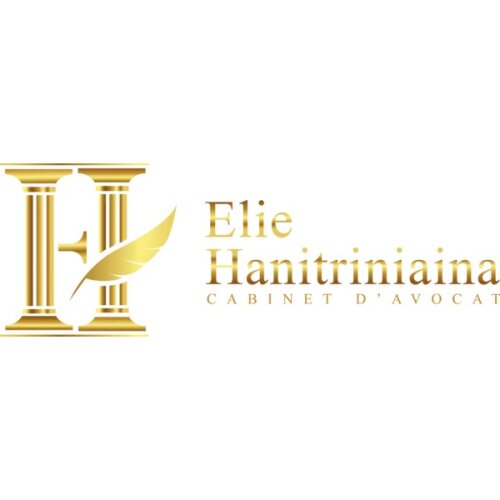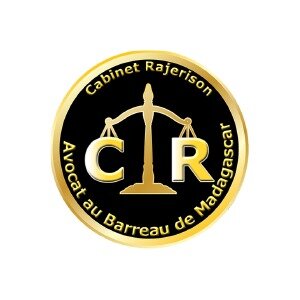Best Project Finance Lawyers in Madagascar
Share your needs with us, get contacted by law firms.
Free. Takes 2 min.
Or refine your search by selecting a city:
List of the best lawyers in Madagascar
About Project Finance Law in Madagascar
Project finance in Madagascar is a growing field, primarily driven by the country's rich natural resources, infrastructure needs, and ongoing economic development. Project finance typically refers to the funding of large, capital-intensive projects - such as mining operations, energy plants, or public infrastructure - through a structure where repayment is mainly dependent on the project's future cash flows rather than the sponsors' balance sheets.
The legal framework for project finance in Madagascar incorporates general business, contract, and investment laws alongside sector-specific regulations, especially in mining, energy, transport, and infrastructure. The system seeks to attract foreign investment while ensuring social and environmental protections. Madagascar's legal system is based on civil law traditions, with legislation and regulatory structures evolving to accommodate complex financial arrangements typical of project finance.
Why You May Need a Lawyer
Engaging a lawyer with expertise in project finance is essential due to the complexity and scale of these transactions. Common reasons you may need legal assistance include:
- Structuring and negotiating financing arrangements involving multiple parties, such as sponsors, lenders, government entities, and contractors
- Understanding the relevant regulatory requirements and securing necessary permits or concessions
- Mitigating risks associated with currency fluctuations, political events, and changes in law
- Drafting and reviewing project agreements, loan documents, and security contracts
- Managing land acquisition, property rights, and environmental compliance
- Resolving disputes that may arise during the project's lifespan
- Ensuring adherence to local and international standards for anti-corruption and anti-money laundering
- Facilitating interactions with local authorities and governmental bodies
A lawyer can offer guidance throughout the entire project lifecycle, from the initial feasibility study to financial closing and ongoing compliance.
Local Laws Overview
Understanding Madagascar's legal and regulatory environment is critical for successful project finance transactions. Key aspects of local laws relevant to project finance include:
- Investment Code: Provides incentives and guarantees to investors, including foreign entities, and sets out registration requirements for investment projects.
- Land and Property Laws: Regulate land acquisition, transfer, and leasing. Often, foreign investors must work with the government to obtain land use rights.
- Securities Law: Outlines rules for taking security over project assets, cash flows, and other collateral, including registration and enforcement procedures.
- Public-Private Partnerships (PPP): Madagascar has specific rules governing PPPs, often used for infrastructure and public utility projects.
- Environmental Regulations: Environmental Impact Assessments are mandatory for most large projects, alongside continuing compliance obligations.
- Sector-Specific Laws: Industries such as mining, energy, and telecommunications have dedicated legal frameworks governing licensing, concessions, and tariffs.
- Dispute Resolution: Madagascar recognizes both local courts and, in some circumstances, international arbitration for commercial dispute resolution.
- Foreign Exchange Controls: There are regulations covering the repatriation of profits, loan repayments, and currency conversion, which can impact project financing structures.
It is highly advisable to seek legal counsel to navigate these often complex and evolving legal requirements.
Frequently Asked Questions
What is project finance?
Project finance is a financing method used for large projects where repayment is based on the project's cash flow rather than the sponsors' assets. It usually involves the creation of a special purpose entity and complex contractual arrangements.
Why is project finance popular for infrastructure and energy projects in Madagascar?
Project finance allows developers to undertake large-scale infrastructure or energy projects without risking their own finances, while attracting outside investment and expertise. Madagascar's infrastructure needs and resource projects often require this type of structure.
Can foreign companies participate in project finance transactions in Madagascar?
Yes, Madagascar's investment laws encourage foreign participation and offer guarantees, but certain restrictions and processes apply, particularly concerning land ownership and permits.
What legal structures are common in project finance in Madagascar?
Special purpose vehicles (SPVs) are commonly created to isolate project risks and obligations. These are legal entities established solely for the project, separate from the sponsors' other operations.
What kinds of security can lenders take in project finance deals?
Lenders typically take security over project assets, receivables, contracts, accounts, and, in some cases, shareholder interests in the SPV. The proper creation and registration of securities is critical to enforceability.
Are there restrictions on the repatriation of profits or repayment of loans abroad?
Foreign exchange regulations govern the movement of funds into and out of Madagascar. While repatriation is allowed, it is subject to certain reporting and approval requirements that should be reviewed early in the project planning stage.
What environmental compliance is needed for project finance?
Most large projects must undertake an Environmental Impact Assessment and comply with ongoing environmental standards. Non-compliance can result in fines, delays, or even project suspension.
How are disputes in project finance typically resolved in Madagascar?
Disputes may be resolved in Malagasy courts or through international arbitration if specified in the contracts. Legal counsel can help draft appropriate dispute resolution mechanisms.
What role do government approvals play in project finance?
Many project finance transactions require government approvals, permits, or licenses, particularly in regulated sectors. Legal assistance is vital to navigate these administrative processes efficiently.
How can a lawyer help with due diligence?
A lawyer conducts legal due diligence by reviewing all relevant documents, evaluating regulatory compliance, identifying risks, and advising on solutions to potential legal challenges before financial close.
Additional Resources
If you require more information or support regarding project finance in Madagascar, consider contacting or researching the following organizations and governmental bodies:
- Madagascar Investment Promotion Agency (EDBM Madagascar) - Supports investors on regulatory and practical matters
- Ministry of Economy and Finance - Governs public finance regulations and investment codes
- Enterprise Registry (Registre du Commerce) - For company formation and due diligence
- Ministry of Energy and Hydrocarbons - For energy-related projects and permits
- Ministry of Mines and Strategic Resources - For mining project regulations
- Environmental National Office (Office National de l’Environnement) - For environmental compliance and EIA procedures
- Local law firms with project finance expertise
- International development organizations supporting infrastructure and public-private partnerships in Madagascar
Next Steps
If you are planning or participating in a project finance transaction in Madagascar, consider the following actions:
- Gather all project details, financial projections, and available documentation
- Identify the relevant sector regulations and necessary governmental approvals
- Contact a reputable law firm or lawyer specializing in project finance in Madagascar to discuss your goals and challenges
- Collaborate with your legal advisor to conduct comprehensive due diligence and ensure compliance with local laws
- Develop a timeline and checklist for obtaining permits, forming entities, and negotiating contracts
- Stay informed about changes in legal and regulatory requirements that could affect your project
Early legal engagement helps anticipate potential legal, regulatory, or practical obstacles - ensuring your project stands on a firm and compliant foundation from the outset.
Lawzana helps you find the best lawyers and law firms in Madagascar through a curated and pre-screened list of qualified legal professionals. Our platform offers rankings and detailed profiles of attorneys and law firms, allowing you to compare based on practice areas, including Project Finance, experience, and client feedback.
Each profile includes a description of the firm's areas of practice, client reviews, team members and partners, year of establishment, spoken languages, office locations, contact information, social media presence, and any published articles or resources. Most firms on our platform speak English and are experienced in both local and international legal matters.
Get a quote from top-rated law firms in Madagascar — quickly, securely, and without unnecessary hassle.
Disclaimer:
The information provided on this page is for general informational purposes only and does not constitute legal advice. While we strive to ensure the accuracy and relevance of the content, legal information may change over time, and interpretations of the law can vary. You should always consult with a qualified legal professional for advice specific to your situation.
We disclaim all liability for actions taken or not taken based on the content of this page. If you believe any information is incorrect or outdated, please contact us, and we will review and update it where appropriate.
Browse project finance law firms by city in Madagascar
Refine your search by selecting a city.














